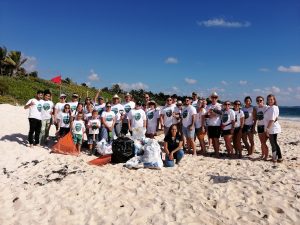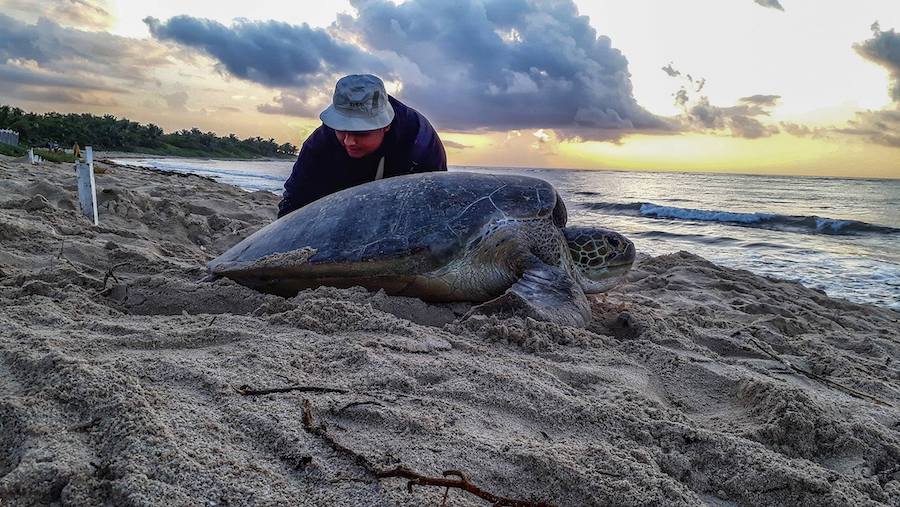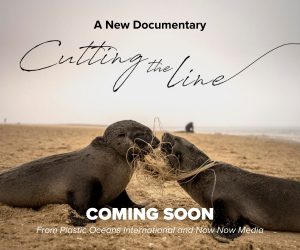The strengthening of us: BlueCommunities Continues Expansion on Yucatan Peninsula
It’s increasingly being realized in progressive environmental endeavors that local autonomy and engagement is key. In part this is because clearly nobody knows their immediate space better than those who live there; and secondly because the only way that any project achieves that most elusive of attributes – legacy – is if real people on the ground live and breathe an action and take it forward.
Gone, increasingly, are the one-size-fits-all rule of development wherein an entity declares a particular best practice and imposes it on wildly different case studies in the hope of standardizing and streamlining a process. Which doesn’t mean that organizations can’t run or be involved in programs in different areas – this is absolutely possible assuming the key twin components of a) respect and trust in locality and b) collaborative, horizontal participation alongside existing structures.
Of various international examples of projects which currently fit this bill, one of the highest profile and fastest moving is Plastic Oceans International’s BlueCommunities initiative, all the more gratifying for just having added three new communities and organizations to the fold in the Yucatan Peninsula: Centro Ecológico Akumal; Saving Our Sharks; Flora, Fauna y Cultura de México.

Centro Encológico Akumal ensuring a cleaner and safer beach.
Whilst the three are ostensibly very different, with varying focuses, the great unifier they share is that they are “like-minded and like-hearted people and organizations standing strong against the rising storm of environmental desolation,” as described by Salvador Ávila, Executive Director for Plastic Oceans Mexico.
Of the three, the Centro Ecológico Akumal (Ecological Center of Akumal) is the most hyper-local, existing – as the name suggests – in the town of Akumal, located on the Riviera Maya between Cancun and Tulum at about the height of southern Cozumel.
Established in 1993, the center’s remit is to promote environmental initiatives to protect the maritime and coastal region of the area, as well as its biological diversity. Working across investigation, education and public outreach, a keynote focus of the CEA is custodianship of its offshore reef.
“Participating as part of the BlueCommunities initiative is amazing,” says Angélica Araceli Pech Constantino, Coordinator of Communication & Volunteers. “We’re all fighting the scourge of plastics in our oceans, and together we can work to establish strategies to engage with society as to how to integrate sustainability into their daily lives.”
Saving Our Sharks and Flora, Fauna y Cultura de México are more regional bodies but no less focused on the local for it. The former is in essence a shark conservation non-profit focused on the coast and seas of Quintana Roo and in its ten years of work to date has strived to drive public consciousness away from fear in sharks and depredation of these apex predators. In particular, its outreach drives a more nuanced view of the shark in the ocean ecosystem, seeking to activate the economic possibilities presented by these unique creatures when alive in a healthy ecosystem.
Pamela Vázquez, SOS Coordinator, is clear on the value of the BlueCommunities initiative: “This generation of a network of organizations brings us closer to others with the same objectives and adds tremendous strength to our collective actions.”

Flora Fauna y Cultura protects over 20,000 sea turtle nests along the Riviera Maya coast.
Juan Muñoz Hormaechea, Coordinator of Organizational Development for Flora, Fauna y Cultura de México, is in agreement: “We’re delighted to be part of Plastic Oceans’ BlueCommunities and a founding partner on the Riviera Maya. We consider initiatives such as this to be pathways for an ecosystemic vision where local ecosystems don’t remain isolated but can transcend their own context in order to impact on great global change.”
Flora, Fauna y Cultura de México for its part was born in 2002 as a response to local environmental and cultural problems generated by the acceleration of urban and touristic development in the state of Quintana Roo. Since then the organization has worked in conservation of key species and ecosystems, as well as in the health and wellbeing of local communities – recognizing the key link between strength of local community and environmental custodianship. In particular, all of the organization’s programs have an educational component focusing on sustainable development as – in the words of Muñoz Hormaechea – “a fundamental tool to create agents of change and achieve transformation in the long term.”
“Quintana Roo is a state with great challenges and threats,” he continues. “Its natural and cultural heritage make this area one of the great global destinations for tourism, and as such it is essential to design and execute actions which contribute to regional environmental, social and economic sustainability.”

Youth education is one of many programs carried out by Saving Our Sharks.
As Muñoz Hormaechea intimates, there are few people on earth who are not aware of the Yucatan Peninsula – and the Riviera Maya. It is an emblematic region internationally but also has real local people and communities on the ground; who have always been on the ground. Any real sustainable ‘development’ must pay heed to what is already in place, not just because one species or another is important – although plainly that in itself could be enough good reason – but because not to do so involves a colonialist world view which leaves no-one emerging unscathed.
Mutual respect is important for everyone – for all creatures – and for our own view of ourselves, a point echoed by Susana Argüelles, Project Coordinator for Plastic Oceans Mexico: “BlueCommunities for me is of major importance. As a conscious collective group, working in favor of common social and environmental well-being, it’s about moving forward together as one. Sometimes when we work alone we are weighed down by the time and the effort invested, but when we work together, this is replaced by passion and love.”
And there it is: what better way to look at the BlueCommunities initiative than as an investment of passion and love. Because sometimes it’s easy to forget that we are our environment.
Welcome, Yucatan.
Here’s to the linking of arms and to the strengthening of us.
Jon Bonfiglio works in sustainability and covers Latin America news & environment for a variety of media outlets internationally.


Trackback: Apartheid